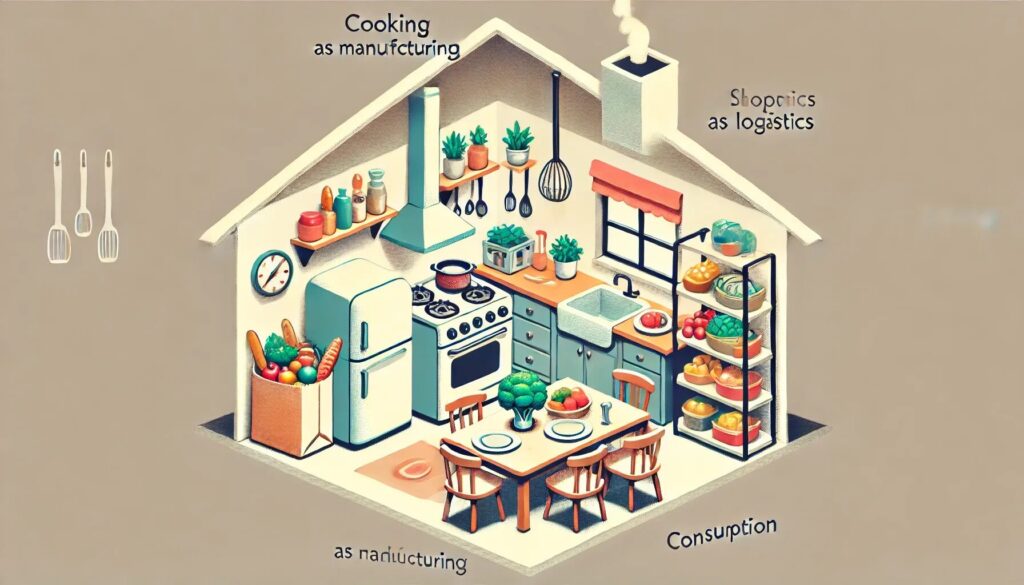1. Introduction
The home kitchen can be considered a small industrial society, fulfilling various roles from ingredient procurement to cooking and sharing meals at the dining table. While activities like shopping and cooking are independent processes, they come together in the home setting to form the foundation that supports family health and communication. In this article, we will explore the roles woven together by cooking, shopping, and the dining table, and their importance.

2. Practical Points and Examples
- **”Shopping as the Kitchen’s Foundation”**The starting point of kitchen activities lies in shopping for necessary ingredients. For example, purchasing seasonal vegetables allows you to create meals that reflect the seasons while supporting family health. Additionally, planned shopping can reduce food waste and ease the household’s financial burden. Shopping at supermarkets and convenience stores is a crucial process for keeping the kitchen running smoothly.
- **”The Value and Creativity Generated by Cooking”**Cooking is the process of using purchased ingredients to create flavors and nutritional value unique to the home. For instance, even a simple stir-fry can be made special by adjusting the seasoning to family preferences. Furthermore, utilizing meal prep and freezer storage can help streamline weekday meal preparation and assist in regulating the household’s daily rhythm.
- **”Communication at the Dining Table”**The dining table is not just a place for family members to gather and enjoy meals, but also a space to deepen communication. For example, it becomes a place to nurture family bonds by sharing the day’s events or discussing weekend plans. Moreover, combining homemade dishes with store-bought side dishes allows for maintaining a warm dining atmosphere while reducing the workload.
- **”Sustainable Kitchen Management”**When thinking of the kitchen as a “small industrial society,” efficiency and sustainability become essential. It’s effective to purchase only necessary quantities to reduce food waste and find creative ways to remake leftover ingredients. Additionally, it’s important to reduce household waste by using eco-friendly shopping bags and recyclable containers.
3. Points to Note and Tips
To efficiently manage a home kitchen, it’s important to balance different roles. When shopping, plan to purchase only what’s needed, and choose cooking methods that match your household’s rhythm. To make the most of dining table time, prepare in advance and create a system where family members share cleanup duties for smooth operation.
4. Summary and Next Actions
The kitchen is a small industrial society where shopping, cooking, and dining processes work together to enrich family life. For your next shopping trip or cooking session, try to be conscious of each role and take steps that consider the overall balance of the household. The value of “food” created in the kitchen will become a significant force in supporting family health and bonds.




